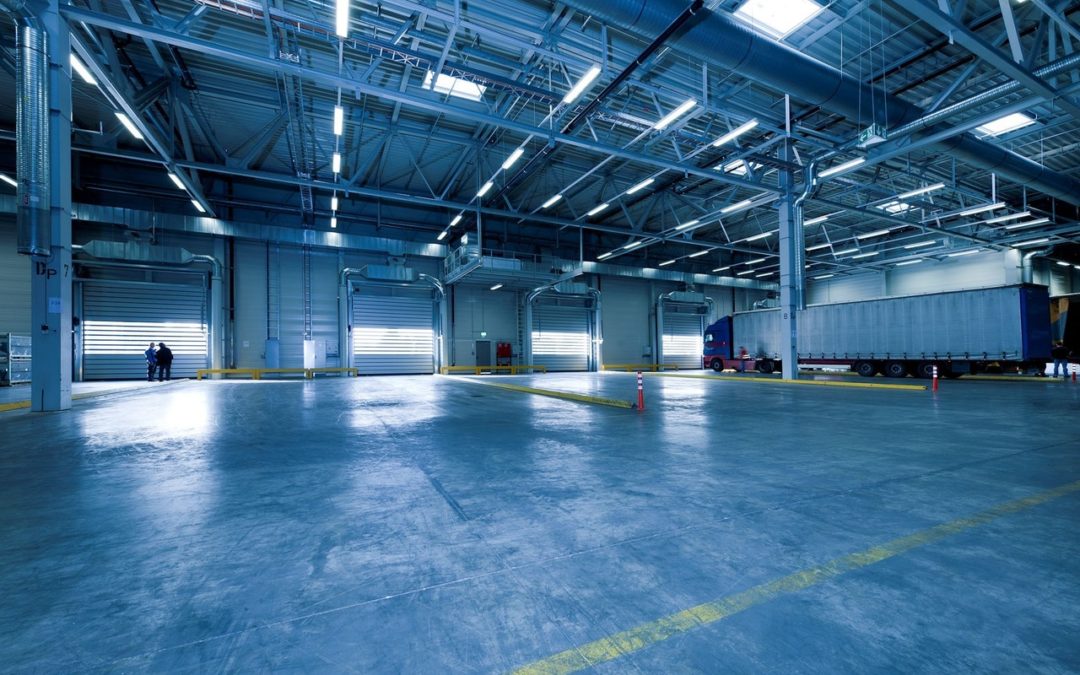What is a Warehouse ERP Software?
Due to the constant growth of the industries, it is increasingly necessary to use tools that allow optimizing and automating the processes of the transport and storage sector. Outsourcing strategies are becoming more common, and logistics operators have to provide integral solutions that include transport and storage. In particular, storage needs can be diverse: logistics warehouse, cross-docking, bonded warehouse. In this subcontracting process, companies expect to gain in competitiveness, but without losing the traceability of their goods. In order to be able to respond to these needs, logistics operators must have ERP software for the management of logistics warehouses that allows them to facilitate operations such as communication between correspondents, knowing the real stock of the warehouse or managing the temporary deposit warehouse (ADT).
What is a Warehouse Management System? (WMS)
A WMS is a logistics software used for the management, control, optimization and coordination of the processes in a warehouse. The objective of the tool is to manage in a centralized, digital and accessible way all the references that enter, leave and are managed within a warehouse. The different WMS technologies allow the integration of sensors and devices for the correct registration of goods. Likewise, a WMS has the capacity to link digitally with customers and suppliers to automatically launch and receive purchase orders. This functionality drastically speeds up warehouse operations.
Having powerful ERP software in today's demanding environment is a competitive advantage. In particular, having a WMS for the management of your warehouses allows you to offer a more transparent, agile service to your customers. Likewise, all this differential value leads to a reduction in costs by maximizing productivity. In general,
Top 5 benefits of using WMS warehouse management software
1. Reduction of operational costs
Without a doubt, the biggest advantage of implementing a warehouse management solution is cost reduction. A WMS makes it possible to optimize the location and distribution of goods, as well as personnel operations. Minimizing manual tasks through digitalization allows your team to be engaged in operations that add more value to your service. The intelligent distribution of goods allows you to reduce internal movements and speed up the generation of orders.
2. Full visibility of the inventory
Another important advantage of WMS systems is the ability to have a real-time picture of the inventory, through the comprehensive recording of inputs, outputs and location changes. All this, through the use of RFID technology, serial numbers and bar codes. The visibility of the inventory makes it possible to provide real-time information to e-commerce platforms, for example, as well as providing valuable information for demand forecasting. The entire supply chain benefits. In conclusion, inventory visibility allows for a better quality relationship with suppliers and customers.
Continuous improvement
WMS solutions that operate from cloud platforms allow providers to offer software updates on an ongoing basis. In this way, companies can keep up with industry best practices quickly and automatically. The focus is then on operations that provide value for the logistics operator.
4. Better integration with the rest of the value chain
Warehouse information must be readily available to the rest of an organization's value chain. For example, for invoicing, sales actions, procurement, transportation, etc. A WMS allows for the integration of all automated information on inputs, outputs, picking, packing in real time from mobile devices (PDA) with the rest of the information platform, and reliably provides this data to the rest of the chain.
5. Security
ERP management software improves the security of the information flow managed in the warehouse. WMSs require employees to use personal access credentials to perform operations. This practice allows complete traceability and responsibility for the various movements of goods, reducing the risk of loss and theft. In addition, the different levels of access to the platform allow access to information in a staggered manner, making the most sensitive information accessible only to the right people. Finally, a cloud-based WMS allows an additional layer of data security in the event of cyber attacks or any service interruption.
In short...
At this point, the advantages of using WMS software for warehouse management are easy to see. If you are looking for more information on how to better manage your warehouses and make a quantum leap in the quality of service you provide to your customers, take a look at the _b first. Designed specifically for logistics operators, our WMS covers three types of warehouse in one. Logistics warehouse, cross-docking and bonded warehouse all work under the same application. This way, you get complete traceability of the logistics chain, increasing the productivity of your warehouse.
_b firstThe ERP Logistics Software for Forwarders and Logistics Operators
Do you want more information? Leave us your details and we will contact you as soon as possible.

Consultant in Logistics and Supply Chain Technologies


